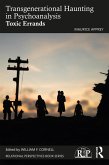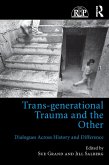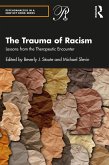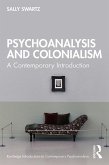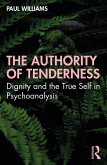With an informed and impassioned voice that evokes the tragic psychic consequences of the unresolved, silenced tragedies and transgressions that haunt subsequent generations, Apprey illustrates how the analyst can unfold a patient's transference wishes and emancipate them from the unconscious projects, or errands, they have inherited. This can happen through a threefold process of excavating the unconscious sedimentations of ancestral history, appropriating and reactivating the ancestral errands within the transference, and subsequently decoding the patient's transference pressures. Expanding on Apprey's work about the analyst's field of inquiry and ways of listening in clinical practice, this book illuminates the potential for a resolution, rather than a re-enactment, of the traumas that can haunt a family system across generations.
Attending to the manifestation of transgenerational trauma through varied clinical material, and informed by the thinking of Sigmund Freud, among others, this book will be essential reading for all psychoanalysts and psychotherapists.
Dieser Download kann aus rechtlichen Gründen nur mit Rechnungsadresse in A, B, BG, CY, CZ, D, DK, EW, E, FIN, F, GR, HR, H, IRL, I, LT, L, LR, M, NL, PL, P, R, S, SLO, SK ausgeliefert werden.
Vamik Volkan, professor emeritus of Psychiatry, University of Virginia; president emeritus of International Dialogue Initiative and past president of the Virginia Psychoanalytic Society, Turkish-American Neuropsychiatric Society, International Society of Political Psychology and American College of Psychoanalysts
'In this book, Apprey, a pioneer in the study of psychic phenomena expressing transgenerational transmissions of aggressivity, brilliantly shows the implications of such transmissibility for psychoanalytic theory and therapy. Taking Freud's instinct theory and reworking it into an object relations theory that can account for the temporality of psychic messaging, Apprey offers various strategies for conceptualizing how humans enact and make sense of history. Yet, of Apprey's dramatis personae, Freud is not the central character. Nor are the philosophers Husserl, Heidegger, Merleau-Ponty, Jean-Luc Marion, Claude Romano, et alia - all of whom Apprey mobilizes with total perspicacity. The main figure turns out to be Auden, whose celebrated 1937 poem, "On this Island" prompted Apprey to think through the seeming contradictions embedded in the poetic phrase: ships diverge on urgent voluntary errands. Under what conditions are errands voluntary? And, if errands are truly urgent, then what room is left for choice, the spontaneous? Auden's "errands" would orient Apprey, like the diverging ships in the poem, sending him on a multiplex psychoanalytic errand of his own.'
Michael Uebel, a scholar who has taught literature, literary history and cultural theory at the University of Virginia, Georgetown University, and University of Kentucky, and clinical social work at the University of Texas, Austin



